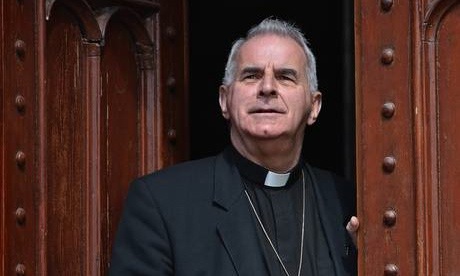Britain’s senior Catholic clergyman, Cardinal Keith O’Brien, has stepped down after three priests and a former priest accused him of inappropriate behaviour towards them in the 1980s.
The four, from the cardinal’s archdiocese of St Andrews and Edinburgh, complained to apostolic nuncio Archbishop Antonio Mennini days before Pope Benedict’s unexpected resignation.
The allegations were then publicised in The Observer newspaper, apparently because the complainants did not want Cardinal O’Brien to attend the conclave to elect the new pope.
While he contests the accusations, Cardinal O’Brien said he apologised to anyone he had let down and said he did not want the controversy to overshadow the election of the new pope.
Cardinal O’Brien had been due to retire on March 17, when he turns 75. His immediate resignation means the cardinal will not now take part in the election of a successor to Pope Benedict.
One complainant said he was a seminarian when the cardinal, then his spiritual director, made an inappropriate approach after night prayers.
He later resigned from the priesthood when the cardinal became a bishop. “I knew then he would always have power over me. It was assumed I left the priesthood to get married. I did not. I left to preserve my integrity.”
The three priests made similar complaints, one saying he found himself dealing with unwanted behaviour after a late-night drinking session.
“You have to understand,” explains the ex-priest, “the relationship between a bishop and a priest. At your ordination, you take a vow to be obedient to him.
“He’s more than your boss, more than the CEO of your company. He has immense power over you. He can move you, freeze you out, bring you into the fold…he controls every aspect of your life. You can’t just kick him in the balls.”
Only a few days before the allegations were published, Cardinal O’Brien said the church’s requirement for priests to be celibate was not of “divine origin” and should be reconsidered.
“Many priests have found it very difficult to cope with celibacy as they lived out their priesthood, and felt the need of a companion, of a woman, to whom they could get married and raise a family of their own,” he told the BBC.
Sources:
Image: The Independent
